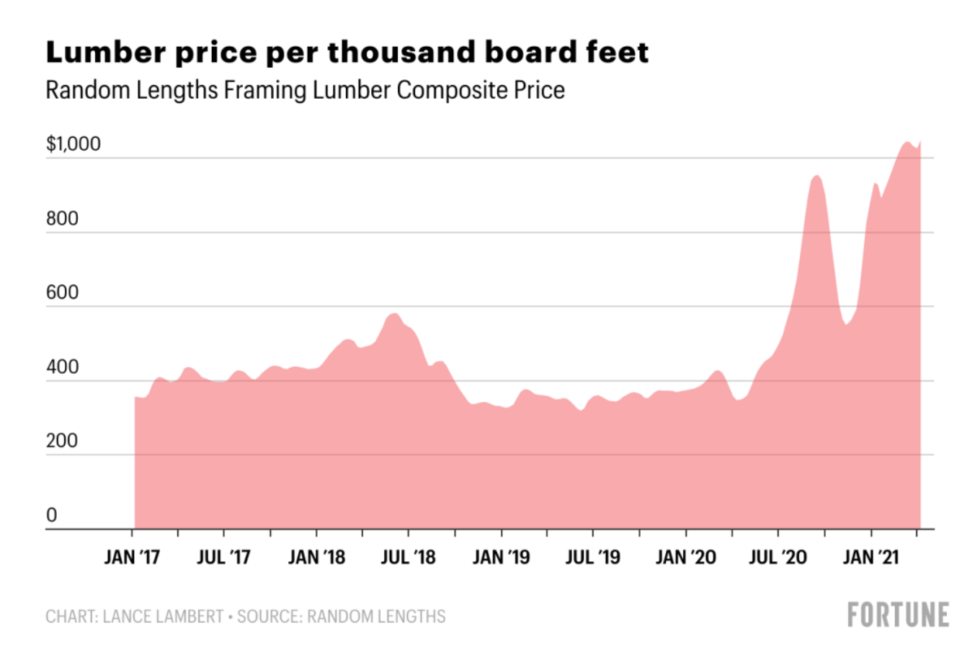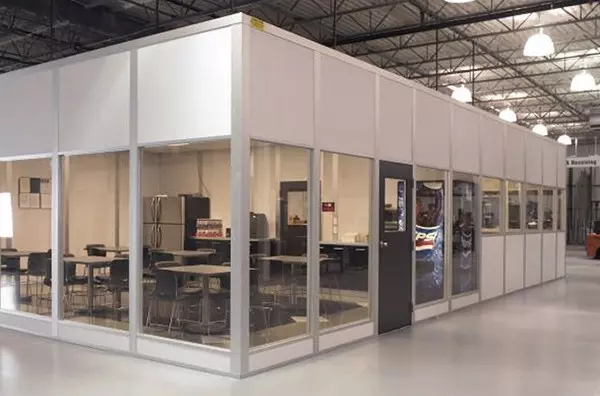


It’s no secret that lumber costs are at an all-time high. The effect of lumber’s rising costs is often talked about in regards to residential construction, but what does it mean for the commercial construction industry? Rising lumber costs are affecting more than just the housing market. Let’s discuss why lumber costs continue to rise, what this means for commercial construction professionals, and how contractors can work around this shortage.
The price of lumber per thousand board feet is at an unprecedented high. Up 208% from a year ago, the lumber industry hasn’t seen a demand of this kind in decades.

It will come as no surprise that the cause of these skyrocketing costs is the COVID-19 pandemic. When the pandemic hit, lumber mills reduced or stopped production to respond appropriately to quarantine restrictions. At the same time, Americans overwhelmingly decided to use their time cooped up at home to tackle outstanding home improvement projects.
This increased demand, paired with a limited supply has created a lumber shortage that is unlikely to go away anytime soon. Demand has only continued to increase for construction, both residential and commercial, and while lumber companies are back to production, there’s simply no way they’ll be able to catch up in the busiest season of the year. Because there is such a backlog of projects, experts don’t expect prices to come down much in the year of 2021.
It’s true that much of the press surrounding rising lumber costs has been centered around residential building and home repair projects. But, this rising cost of lumber deeply impacts the commercial construction industry as well.
As you might expect, the increasing costs of lumber are passed directly to commercial construction projects, just as they’re passed to residential builds. On average, experts expect additional material costs to add at least $24,000 to the cost of a single-family home build. Just imagine how that number compounds as you move to large-scale commercial construction projects.
With rising prices and a general material shortage, commercial construction projects are behind, and likely to stay that way if contractors don’t find a new way to approach these projects. The longer commercial constructions are delayed, the greater the costs associated with the project become. It is incumbent on general contractors and commercial construction professionals to seek a solution that can put their projects back on track.
For commercial construction professionals and general contractors looking for a better solution to the lumber crisis, modular construction can help.

As an industry, modular construction is considerably less reliant on lumber, opting instead for reusable materials like high-quality gypsum board, vinyl panels, and metal structural frames. This means contractors can forget about both the material shortage and the excessive increase in cost that lumber currently carries.
Modular construction is a faster process than traditional lumber-framing. Building components are pre-assembled and shipped directly to the job site, where they can be installed with a smaller crew of unskilled laborers. This eliminates the need for on-site lumber framing crews and makes it easy to schedule skilled laborers for the very minimum — simply connecting the modular building to the electrical grid, plumbing hookups, or HVAC system.
Finally, modular construction offers a better lifetime value than traditional lumber-based commercial construction. Many modular construction projects qualify as tangible personal property, which means they depreciate over 7 years, rather than the 39 years of a traditional commercial construction building. This is a significant tax benefit that contractors can pass on to their end-user.
Conventional construction is suffering and will continue to suffer with the astronomical costs of lumber and the ongoing scarcity of skilled labor. Modular construction has long been a cost and time-saving alternative that delivers the high-quality product commercial contractors are looking for. Increasing lumber costs like these only highlight just how well modular can perform. For more information about how modular construction can fill the gap for commercial construction projects, we encourage you to get in touch with the Starrco team by phone at 800-325-4259 or online today.